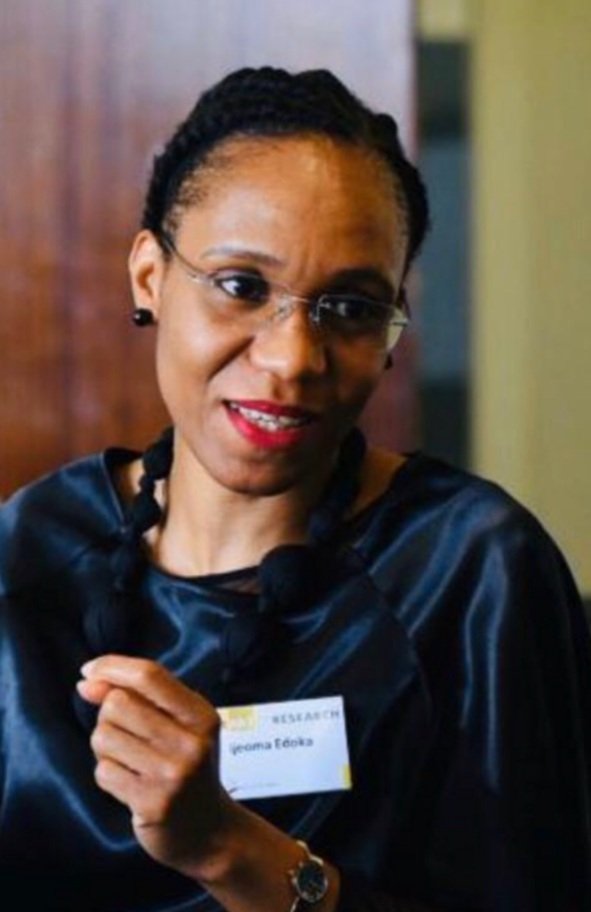We recently sat down with Dr. Ijeoma Edoka, Health Economist at the Health Economics and Epidemiology Research Office at University of the Witwatersrand in Johannesburg, South Africa, to learn about her career in immunization economics.

What projects have you been working on? I work on a number of projects, mostly to do with costing and cost-effectiveness of COVID-19-related interventions, but the most relevant would be that I’m leading a project to cost the South African COVID-19 immunization program as well as assessing the cost-effectiveness of the program. I also work on a project estimating inpatient care costs for COVID-19 in two tertiary hospitals in South Africa.
How did you find your place in health economics? I’ve been a health economist for a very long time so I’m not even sure where to start! I was actually a pharmacist originally, and I came across cost-effectiveness analyses in my search to do a PhD just after completing a master’s in pharmacology at the University of Oxford. I attended a short course on cost-effectiveness analysis at the University of Oxford in 2008, and I loved it and the rest is history.
I wanted to do a PhD in health economics but had to first do a masters because I was coming from a pharmacy background. I did the master’s in health economics at City University, London, and a PhD in economics from the University of York. After my PhD I worked on health financing issues at the Queen Margaret University in Edinburgh, where I applied health econometric models to evaluate the impact of health financing policies in low- and middle-income countries. I moved to Johannesburg in 2016, and my work revolved a lot more around economic evaluation research. In 2017, we collaborated with faculty from Johns Hopkins University to develop a short course in vaccine economics. That was the first time I got really into immunization economics. I led the South African hub within the broader TVEE hub.
What do you like most about what you do? The two that jump straight out are that I get to work in an environment that is not just purely research… that there is a connection with policymakers… It’s not just sitting down at a desk and doing research, but there is a feedback loop, an iterative process in which one is providing technical assistance to decision-making bodies or organizations that support decision-makers within the country and the continent.
The other thing I love is that I get to support and mentor junior researchers. That’s an aspect of my work that I really love, you know, the mentorship part that allows one to support another individual in their career as well as in their life.
Do you have any tips for aspiring health economists? Coming from a pharmacy background, it was quite a daunting process moving from pure health science to health economics, and in the beginning of every career it always feels daunting. I’ll just say hard work and diligence always pays off, and not being afraid to try new things even if it feels like it’s outside one’s comfort zone.
How do you spend your time outside of work? I don’t have much free time, but when I do, I love to make flower arrangements. It allows me to redirect my thoughts to finer things. And I love cooking and spending time with my nine-year-old niece. I particularly enjoy when I’m cooking for other people.
Would you recommend Johannesburg to a visitor? Yes, I think it has a lot of interesting things and a very rich history. Definitely take a bus tour around the city including the Apartheid Museum because it’s quite interesting to see how the country has evolved away from its dark history.
What is your favorite family or cultural tradition? The first thing that jumps to my mind is the traditional marriage ceremony. I’m African, I’m from southeastern Nigeria, and I’m Igbo, and we have very rich cultural traditions. The marriage ceremony is the one I’ve attended the most; it’s amazing. The dresses, the costumes, the music, the dance, and the traditional rites are just very unique and spectacular. Igba-Nkwu, is what the traditional ceremony is called.
